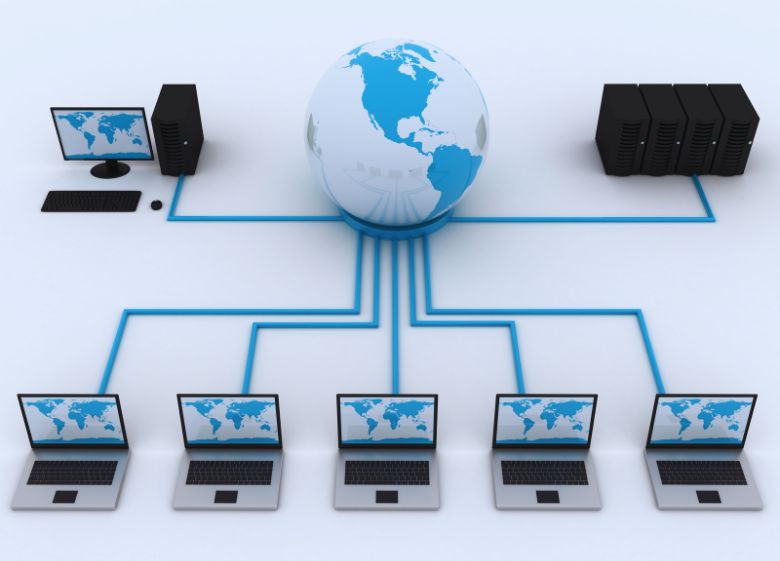Computer network operations (CNO) refer to the processes and practices involved in designing, building, securing, monitoring, analyzing, and maintaining computer networks. It encompasses a broad range of activities aimed at ensuring the confidentiality, integrity, and availability of data and systems.
Table of Contents
Definition of Computer Network Operations
Computer Network Operations involves three core functions:

Monitoring Networks
Continuously tracking and analyzing network traffic, system logs, user activities, and other events to identify anomalies, threats, and vulnerabilities.
Analyzing Network Data
In-depth inspection and investigation of network data to gain insights into usage patterns, performance issues, emerging risks, and opportunities for improvement.
Securing Networks
Implementing tools, policies, and procedures to protect networks from unauthorized access, malware, data exfiltration, and other cyber threats.
Goals and Objectives
The primary goals and objectives of Computer Network Operations include:
Confidentiality
Preventing unauthorized access to sensitive data through encryption, access controls, and monitoring.
Integrity
Safeguarding the accuracy of data and ensuring it has not been improperly modified through hashing, permissions, and change management.
Availability
Minimizing network downtime and service disruptions via redundancy, backups, and incident response plans.
Different Types of Computer Network Operations
Computer Network Operations encompasses a spectrum of different capabilities:

Passive Monitoring
Watching network traffic flows, system logs, and user activities without directly interacting with systems.
Active Defense
Employing intrusion prevention and threat hunting to proactively identify and stop attacks.
Offensive Capabilities
Penetration testing, vulnerability analysis, and exploiting adversary infrastructure to enable cyber operations.
Tools and Techniques
Computer Network Operations leverages various tools and techniques:
Firewalls
Control inbound and outbound network traffic based on rules.
Intrusion Detection Systems
Monitor networks and systems for malicious activity based on signatures.
Honeypots
Decoy servers and systems are used to detect and analyze attacker behavior.
Packet Sniffers
Intercept and log network traffic for analysis.
Implementation Challenges
Deploying effective CNO capabilities presents several key challenges:
Legal and Ethical Concerns
Laws and policies constrain certain types of monitoring and active defense.
Maintaining Operational Security
Preventing adversaries from accessing details about Computer Network Operations tools and activities.
Integrating Disparate Systems
Aggregating alerts and data from various monitoring systems.
Career Paths in Computer Network Operations
Computer Network Operations require skilled professionals including:

Network Administrator
Manage day-to-day operation of computer networks.
Security Analyst
Monitor systems for threats, investigate incidents, and analyze data.
Incident Responder
Lead efforts to contain, eradicate, and recover from cyberattacks.
Conclusion
Computer Network Operations encompasses the people, processes, and technologies focused on monitoring, defending, and leveraging computer networks. Effective Computer Network Operations is crucial for identifying and blocking cyber threats while optimizing network efficiency and reliability.
FAQs
What are the main goals of computer network operations?
The main goals are ensuring confidentiality, integrity, and availability of networks and data. CNO aims to prevent unauthorized access, data loss, and service disruptions.
What tools are commonly used in computer network operations?
Common tools include firewalls, intrusion detection systems, honeypots, packet sniffers, SIEMs, vulnerability scanners, and endpoint detection and response solutions.
What skills are required for a career in computer network operations?
Important skills include network administration, systems analysis, security fundamentals, monitoring, troubleshooting, incident response, and knowledge of operating systems, networking protocols, and security tools.
How can organizations improve their computer network operations capabilities?
Key ways to improve include centralizing monitoring, automating analysis and response, integrating security tools, performing regular audits and penetration tests, training personnel, and adopting leading practices like zero trust.
What are some challenges faced in implementing computer network operations?
Challenges include legal and ethical issues with monitoring, maintaining operational security against adversaries, aggregating alerts from disparate tools, lack of skilled personnel, and budget constraints.









